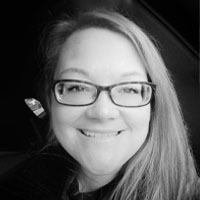Question
What is assessment?
Answer
Assessment has many definitions depending on your research and who you listen to or talk to about it. The National Association for the Education of Young Children (NAEYC) and the National Association of Early Childhood Specialists in State Departments of Education (NAECS-SDE) define assessment as a systematic procedure for obtaining information from observation, interviews, portfolios, projects, tests, and other sources that can be used to make judgments about children's characteristics.
Think about that definition for a second. Systematic is an important word, and we're going to touch back on that word as we continue. Assessment is a procedure, implying that there's some sort of outline for how we're going to attain this information. I like this definition because it has so many different sources for obtaining that info. It's not just one piece of the puzzle. There are lots of different pieces of the puzzle used to make judgments. That's a part of this definition that sometimes catches people. But remember that we're not judging the child. We're trying to make judgments for what's appropriate or most positive for the child and how to make the child's environment and each lesson most impactful for the child. Those are the judgments that we're looking for. Assessment helps us learn all kinds of things about young children.
Carter and Nutbrown (2013) said, “Young children's awesome capacity for learning imposes a potentially overwhelming responsibility on caregivers to support, enrich, and extend that learning.” What we know is that children have an amazing capacity to learn. They are like little sponges. As you well know, they soak up everything that they come in contact with. It can be overwhelming for us as caregivers to make sure that we're doing all that we can to support, enrich, and extend that learning.
Notari-Syverson and Losardo (2004) said, “Assessment gives us information about specific parts of a child's knowledge, behavior, skill level, or personality for the purpose of making evaluative decisions.” All of these pieces help us make evaluative decisions regarding how to support, enrich, and extend learning for each individual child, as well as the class overall.
Assessment is a powerful tool and if you use it correctly it can be so impactful. It can help us determine how we can best help young children learn through the assessment process, which includes observing and documenting. As educators, we are able to make education decisions that affect each individual child as well as the group as a whole. This process is a vital part of most early childhood programs.
Assessment uses the information collected through regular, systematic observations in order to make important decisions about children's developmental and educational needs. Systematic, there's that word again. There's a system in place. Many people are already engaging in this process. Some of us are engaging in the process begrudgingly, and that's part of what we're going to talk about today. We’ll talk about how to change our viewpoint or our lens about how we view assessment so that we can begin to understand how important it is to our daily work with young children.
The process happens naturally as you're spending time watching children, participating in their play and learning, and engaging with them. For example, if you join children in the home living area and say, "Hey guys, can I play?" then really listen to what they're saying. Pick up on those nuances and make notes about what you're noticing as they're playing or vocabulary words that they're using. Another example is to note how many blocks they stacked in the block center today. All of those different things that you're already doing are part of this assessment process.
Assessing the development of young children is a key part of developing a curriculum that meets children where they are, while still providing them with enough challenge to stimulate and support their natural curiosity and desire to learn. In order to help children get to that next level, you have to first know where they're at. Assessment is the way to do that.
Essentially, assessment is a form of reflecting on those observations that we have made as educators through interacting and working with children, collecting information on what children know and really what they can do, and then using that information to guide our instruction and promote children's learning. We're going to talk more about how to do that throughout this course.
This Ask the Expert is an edited excerpt from the course, Purposes and Benefits of Assessment, presented by Natasha Crosby Kile, MS.
